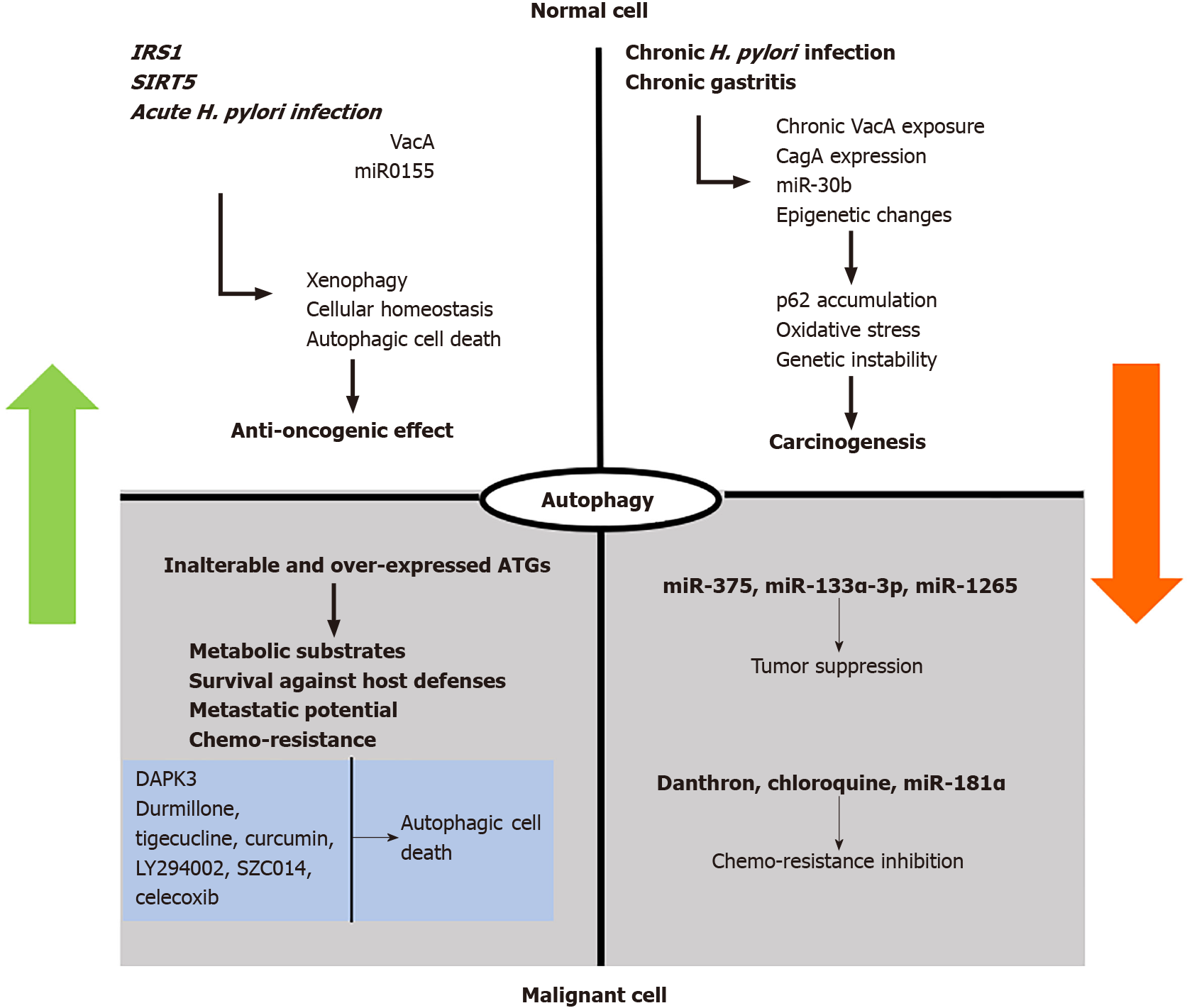Copyright
©The Author(s) 2021.
World J Gastrointest Oncol. Oct 15, 2021; 13(10): 1244-1262
Published online Oct 15, 2021. doi: 10.4251/wjgo.v13.i10.1244
Published online Oct 15, 2021. doi: 10.4251/wjgo.v13.i10.1244
Figure 2 The role of autophagy in normal and malignant gastric cells in response to specific stimuli.
Normal stomach cell-related autophagy appears to inhibit oncogenesis and preserve homeostasis, whereas its downregulation facilitates malignant transformation. Gastric cancer cells express autophagy promoters to yield their energy supplementation, and thus progression, metastasis, negative overall survival and chemoresistance. Several autophagy inhibitors have been recognized to act against malignant cells, thus representing promising targets for future therapeutics. ATGs: Autophagy-related genes; DAPK3: Death-associated protein kinase 3; CagA: Cytotoxin-associated gene A; H. pylori: Helicobacter pylori; miR: MicroRNA; SIRT: Sirtuin; VacA: Vacuolating cytotoxin.
- Citation: Papaefthymiou A, Christodoulidis G, Koffas A, Doulberis M, Polyzos SA, Manolakis A, Potamianos S, Kapsoritakis A, Kountouras J. Role of autophagy in gastric carcinogenesis. World J Gastrointest Oncol 2021; 13(10): 1244-1262
- URL: https://www.wjgnet.com/1948-5204/full/v13/i10/1244.htm
- DOI: https://dx.doi.org/10.4251/wjgo.v13.i10.1244









